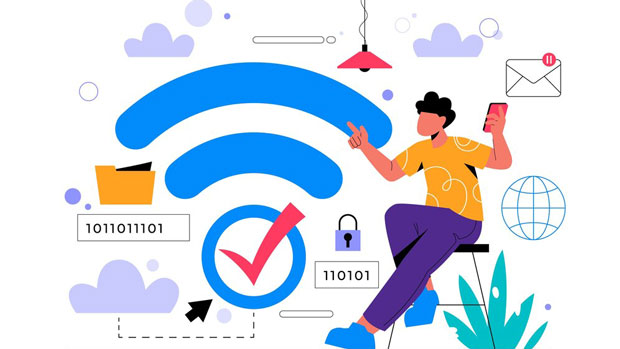In the modern business landscape, automation has become a crucial component for optimizing workflows, enhancing efficiency, and driving productivity. One aspect of automation that often requires attention is the management of proxies, which are essential for tasks such as web scraping, data collection, and anonymous browsing. PYPROXY Free Proxy List is a tool that many individuals and organizations rely on for free proxy solutions. However, when it comes to enterprise-level automation tasks, it is essential to assess whether this tool can meet the scalability, security, and performance requirements of larger, more complex operations. In this article, we will thoroughly examine the advantages and limitations of using PyProxy Free Proxy List for enterprise automation tasks and evaluate whether it is a viable solution for businesses. 1. What is PyProxy Free Proxy List?PyProxy Free Proxy List is a publicly available tool that offers a collection of free proxy servers. It is commonly used for web scraping, automated browsing, and other tasks that require the use of proxies. The list includes various types of proxies, including HTTP, HTTPS, and SOCKS proxies, which can be utilized for anonymous browsing, bypassing geo-restrictions, and avoiding IP blocking during automated tasks.For businesses that rely on proxies for tasks such as competitive analysis, market research, or data gathering, tools like PyProxy can be an appealing option due to the lack of associated costs. However, when transitioning from small-scale use to enterprise-level automation, several critical factors need to be taken into consideration, including speed, reliability, security, and the ability to handle large volumes of requests.2. Scalability and Performance: Challenges at the Enterprise LevelScalability is one of the most significant challenges when using free proxies like those offered by PyProxy for enterprise automation. Enterprise-level tasks often involve large-scale data collection, which requires proxies that can handle high volumes of requests without causing disruptions or delays. Free proxies are generally shared among many users, which can lead to issues such as slow response times, connection timeouts, or even proxy server failures.At the enterprise level, it is crucial to have proxies that are consistently reliable and capable of managing large data loads. PyProxy Free Proxy List may work well for smaller, less demanding tasks, but as the volume of automated tasks increases, the tool's performance can degrade significantly. Businesses that require high throughput and low latency are likely to experience performance bottlenecks with free proxies, especially during peak usage times.3. Security and Privacy ConsiderationsWhen dealing with sensitive data, security and privacy are paramount. Free proxies, like those found on PyProxy Free Proxy List, pose significant security risks. Many of these proxies are not encrypted, meaning that any data transmitted through them can be intercepted by third parties. This is a major concern for enterprises dealing with confidential or proprietary information.Furthermore, free proxies often have minimal authentication and access controls, making them vulnerable to misuse or malicious activity. Using such proxies for automation tasks can expose enterprises to data breaches, cyberattacks, and legal issues, particularly when handling customer information or financial data.For enterprise-level automation, security is a non-negotiable aspect. Paid proxy services that offer encryption, IP rotation, and secure access protocols are typically better suited for businesses that prioritize data security and wish to avoid potential risks associated with free proxies.4. Reliability and Uptime: A Key Consideration for EnterprisesReliability and uptime are essential for enterprise automation tasks. Free proxy services are notorious for their lack of stability and inconsistent availability. Since the proxies in PyProxy Free Proxy List are publicly available and often used by many people simultaneously, the likelihood of facing downtime or poor connection quality is high.For businesses that rely on automation for time-sensitive tasks, such as real-time data collection or transaction processing, any disruption in service can result in significant delays and potential losses. This is particularly true for industries such as finance, e-commerce, or marketing, where automation is often time-critical.Paid proxy services, on the other hand, typically offer service-level agreements (SLAs) that guarantee higher uptime and faster response times. For large-scale automation tasks, enterprises are better off investing in reliable proxy services that offer robust support and guaranteed uptime.5. Geo-Targeting and IP Diversity: A Limitation of Free ProxiesGeo-targeting is a crucial aspect of many enterprise-level automation tasks. Whether it's conducting market research in specific regions, performing competitive analysis, or scraping data from websites with geographic restrictions, having access to a diverse range of IP addresses from various locations is essential.PyProxy Free Proxy List, however, offers a limited selection of IPs, many of which are geographically concentrated or shared among multiple users. This lack of IP diversity can hinder the ability to perform geo-targeted tasks effectively. Additionally, the presence of blacklisted or flagged IPs in free proxy lists can lead to blocked requests or inaccurate data collection, further complicating enterprise-level automation.For enterprises that require a large and diverse pool of proxies from various countries, investing in premium proxy services that offer global coverage and IP rotation features is a more reliable solution. These services can provide the level of flexibility required for sophisticated automation tasks.6. Customer Support and Service: An Enterprise NeedEnterprise-level automation often requires a higher level of support and service to ensure smooth operations. Free proxy services like PyProxy typically do not offer dedicated customer support or technical assistance. This lack of support can be problematic when issues arise, such as slow proxies, blocked connections, or other disruptions.For businesses that rely heavily on automation, having access to customer support is crucial. Paid proxy services often offer 24/7 customer support, including technical assistance for resolving connectivity issues, troubleshooting, and optimizing proxy performance.Having a reliable support team to assist with any challenges can significantly reduce downtime and ensure that automation tasks continue running smoothly, making it a critical factor for enterprise-level operations.7. Cost vs. Benefit Analysis for EnterprisesWhile free proxies may seem appealing due to their zero cost, the potential drawbacks outlined above—such as poor performance, security risks, and lack of support—make them unsuitable for enterprise-level automation tasks. For businesses that rely on automation for revenue-generating or mission-critical activities, the risk of using free proxies far outweighs the potential savings.Investing in a paid proxy service is often more cost-effective in the long run. These services offer better performance, security, and support, ensuring that automation tasks run efficiently without the interruptions and risks associated with free proxies. By opting for premium proxies, enterprises can avoid performance bottlenecks, security vulnerabilities, and downtime, ultimately leading to more successful and profitable automation operations.Conclusion: Is PyProxy Free Proxy List Suitable for Enterprises?In conclusion, while PyProxy Free Proxy List may be suitable for small-scale automation tasks or individual users who do not require high performance, security, or reliability, it is not a viable solution for enterprise-level automation. The limitations of free proxies, including scalability issues, security risks, lack of support, and inconsistent performance, make them unsuitable for businesses with demanding automation needs.Enterprises should invest in premium proxy services that offer higher reliability, better security, and dedicated customer support to ensure the success of their automation efforts. While the initial cost of paid proxies may seem higher, the long-term benefits—such as improved performance, security, and reduced downtime—make them the superior choice for businesses looking to automate their operations efficiently and securely.
Nov 10, 2025


































































